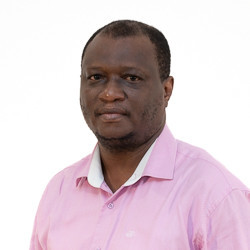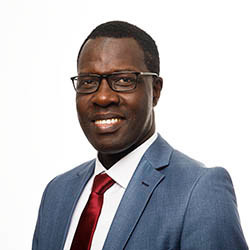Guinea-Bissau
The Context
With a GDP per capita of US$ 494, Guinea-Bissau is among the poorest countries in the world. Since independence from Portugal in 1974, the country has suffered chronic political instability that has displaced people and hampered growth and efforts to combat poverty.
Bordered by Senegal to the north and Guinea to the south, the country includes an archipelago of more than 100 islands and has a population of 1.8 million.
Agriculture is central to the economy. Two crops dominate: rice for domestic consumption, and cashew nuts, which generate 95 per cent of the country’s exports, as a cash crop.
The country’s economy continues to expand despite the suspension of donor flows in 2016 pending resolution of political gridlock. Following growth of 4.9 per cent in 2015, Gross Domestic Product (GDP) was expected to grow by more than 5 per cent in 2016, after a good cashew season.
A 2010 survey found that 69.3 per cent of the population lived in poverty, of which 33 per cent suffered extreme poverty.
Around 75 to 80 per cent of the workforce is rural.
Given the history of fragility in Guinea-Bissau, the outlook for economic growth and reducing poverty are highly uncertain.
Over-reliance on growing cashew nuts exposes two-third of the population to economic shocks. Diversification, either by moving up the value chain, or improving agricultural technology and access to markets, will be essential to achieve sustained growth and combat poverty.
The Strategy
In Guinea-Bissau, IFAD loans are aimed at revitalizing the rural economy to improve food security and fight poverty.
Our approach encourages rural communities to engage in their own development. Current IFAD-backed projects support community development and micro-finance, focusing on developing infrastructure and increasing rice production.
Key activities include:
- promoting poverty reduction, better food and nutrition security, improved natural resource management, building stronger rural institutions and enhancing access to rural finance, particularly in the poor and disaster-prone regions of Quinara and Tombali;
- supporting the country's post-conflict recovery and promoting crisis prevention;
- making gender equality integral to all project services and activities; and
- harnessing the experience and capacity of non-governmental organizations and civil society to complement public sector service provision in target areas.
Country Facts
Some 75 to 80 per cent of the workforce in Guinea-Bissau lives in rural areas, contributing 67 per cent of GDP.
Two major crops dominate the agricultural sub-sector: cashew nuts and rice.
Agriculture plays an important role in the country's trade balance, generating over 90 per cent of export earnings.
Since 1983, IFAD has supported four programmes and projects in Guinea-Bissau, investing US$27.6 million and directly benefiting more than 155,000 rural households.

